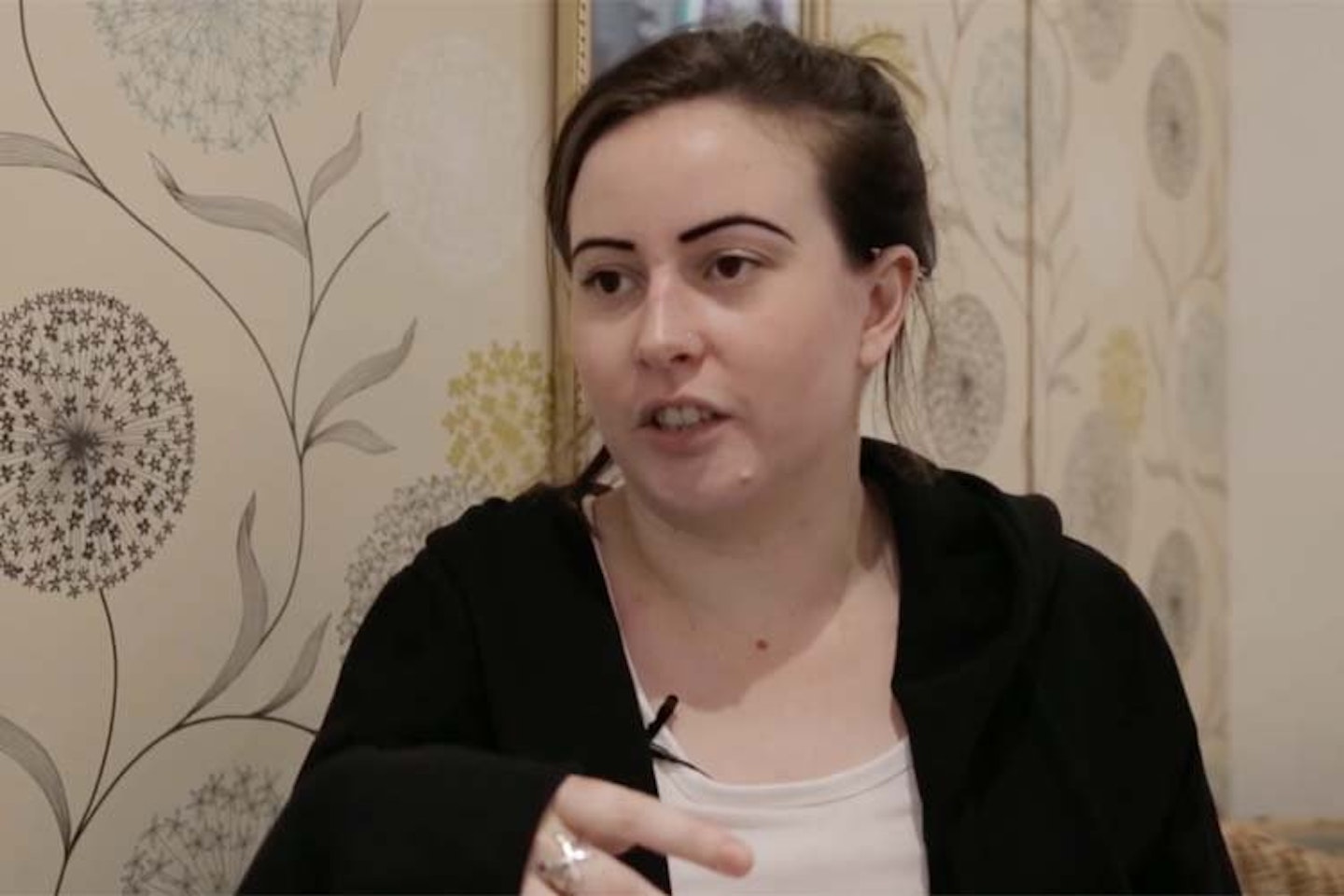It takes over three hours to get to Plymouth from London and costs a fair whack too. Not only does travelling to this part of Devon exceed the time needed to get to European destinations as far afield as Sardinia, Barcelona or Berlin the cost outstrips the cost of flying abroad. Two return tickets cost me a total of £263.26, it’s hard to stomach, let alone pay for or justify.
Speaking of Europe, this area of South West England overwhelmingly voted to leave the EU, to the surprise of pundits and politicians alike. Making the journey here and, particularly, after forking out for an overpriced ticket it’s hard to comprehend how they didn’t see it coming. Plymouth is Devon’s capital city and the importance of this train line is underscored by severe storms in the winter of 2014 which saw the area completely cut off from the rest of the country. The neighbouring county, Cornwall, has campaigned on and off to become its own country since 1969.
Plymouth, Sutton and Devonport is the most marginal seat in the area. The current MP is a Conservative, Oliver Colville, but he won with only 523 votes in 2015 and Labour are, in their own words, ‘fighting to win’ here. I’m here just 24 hours after the Prime Minister, Theresa May, made her second visit in six weeks to the area. She left local journalists ‘scratching their heads’ after skilfully failing to answer their questions.
It’s worth quoting the transcript from the Plymouth Herald’s chief reporter, Sam Blackledge, in full:
SB: ‘Plymouth is feeling the effects of military cuts. Will you guarantee to protect the city from further pain?’
PM: ‘I'm very clear that Plymouth has a proud record of connection with the armed forces.’
SB: ‘How will your Brexit plan make Plymouth better off?’
PM: ‘I think there is a better future ahead for Plymouth and for the whole of the UK.’
SB: ‘Will you promise to sort out our transport links?’
PM: ‘I'm very clear that connectivity is hugely important for Plymouth and the South West generally and that's why we have been putting money into infrastructure. It's important to develop the economy and we will continue to look at plans to continue to look at connectivity down to Plymouth and the whole of the south west.’
Theresa May’s vague answers echo around the Barbican, Plymouth’s seafront. This part of town is also home to naval dockyards. The largest naval base in Western Europe, Devonport Royal Dockyard employed around 15,000 people in the 1980s, by the 1990s that had shrunk to 4,000 and today it remains at that low level. This is a city that has felt decline and been forced to reinvent itself, today there is a world-class class university here which features a Marine department with some of the most advanced equipment in the world as well as an arts centre and rejuvenated 1930s art deco lido. There is also, however, poverty and deprivation; the Plymouth Heraldreports that a full-time job here is barely enough to pull the lowest earners out of poverty, with the lowest 10 per cent of earners in Plymouth making an average of £7.24 an hour.
Cafes and restaurants line the water’s edge; you can take speedboat trips and signs for the National Maritime Aquarium boast an impressive selection of sharks. At one coffee kiosk, I meet Alexandra, who has recently graduated from Plymouth university. Originally from Australia, she has dual citizenship and has lived here since she finished her degree in geology. She wants to be a…geologist which sound reasonable but, she says, she can’t afford to do an unpaid internship. She’s deeply concerned about Brexit and apathy when it comes to British politics and thinks we should take a leaf out of Australia’s compulsory voting book.
Walking from the Barbican into the centre of town, there are billboards declaring Plymouth ‘Britain’s Ocean City’ and while there are some of the shops and pubs they sit alongside are boarded up, this is a place which has clearly received heavy investment and been forced to reinvent itself.
Ellie is a student nurse; she grew up in the North of England but has lived in Plymouth since her late teens. ‘I’m going to vote Labour’ she tells me, ‘but I’m probably slightly biased because I work in the NHS and I see what’s happening to it’. What exactly is she seeing? ‘It’s just being stretched’ she says, ‘there’s not enough nurses, not enough doctors…not enough of anything.’ She began her training before the NHS bursary was cut last year and says there’s no way she would have been able to afford to become a medical professional, on an NHS salary without it.

‘I was brought up in a Labour household’ Ellie adds, ‘but since Jeremy Corbyn has been around I have become more interested.’ Why? ‘He stands up for people…he’s always stuck to what he believes in.’ Apart from the NHS, are there any other issues which are driving her to vote Labour this election? ‘University fees and education’ she says without hesitation, ‘my sister wants to train as a teacher but now she’s trying to figure out whether or not she can afford it. It’s either buying her first home or going to university and I don’t think it should have to be a choice.’
But not all of the young women here are sold on Corbyn. ‘I will probably end up voting Labour’ says Emily, 18, ‘but I’m not that keen to. I feel very off about Jeremy Corbyn and I don’t trust him’. Emily is 18, she couldn’t vote in last summer’s referendum and is currently studying for her A-levels. Why doesn’t she trust Labour’s leader? ‘I know it’s good to do protesting’ she says, ‘but he shouldn’t be out protesting when he has the power to actually change things as the party leader.’ Indeed, protesting is where Corbyn is most at home. Before becoming Labour’s leader in a shock victory, he was not someone who appeared regularly on the front benches as part of the shadow cabinet, meaning he can’t really be judged on his record in the conventional way.
However, nor is Emily a fan of the Prime Minister. ‘I don’t like Theresa May. She says a lot that she’s a feminist but she doesn’t actually do anything for women…she constantly backs Donald Trump which is so horrible…she supports people who are sexist.’ Does it matter that Jeremy Corbyn has shown up to national leaders’ debates while May has ducked out? ‘I think her not doing any of the debates is disgusting...you can’t be like “strong and stable Britain “but then be like “I’m not going to debate anyone”.’

Emily is unenthused by what the main political parties are offering but she’s a politics student and will vote anyway. That’s not true of women her age around the country who are less well informed and, ultimately, they are the people who will be disproportionately affected by the decisions made by whoever wins this election.
I leave to make the three-hour journey back to London. I sit next to Eleanor, who boarded the train a few stops before me. She’s making the journey to the capital to attend a music festival in East London’s Victoria Park. She tells me that she can rarely afford to make this journey and is excited by Corbyn’s manifesto promise to sort out our train lines. She will, unsurprisingly, be voting for Corbyn and says ‘Tony Blair was effectively a Tory in a Labour mask’. For this young woman, NHS cuts and what happens now that we’ve voted to leave the EU are big concerns. As she sees it, Labour offers ‘real change’.
The train trundles back up the country, along the coast and inland to London. This election was billed as a Brexit election but for young women in Plymouth leaving the European Union is just one of many concerns. The women I met today don’t agree on whether Jeremy Corbyn is the leader this country needs but they all agree on one thing: we are in desperate need of change because the status quo has failed. These young women all have serious questions about their futures, about our country's future and they're looking for someone to answer to them.
Like this? You might also be interested in:
What Do The Women Of Boston And Skegness Think About Brexit?
Derby North Is The Country's Most Marginal Constituency, So Why Aren't Young Women Voting There?
Follow Vicky on Twitter @Victoria_Spratt
This article originally appeared on The Debrief.
